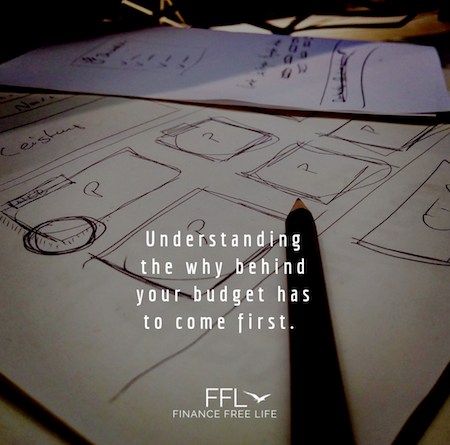Starting a Budget – Takes Time and Effort
Often, when you go to start a budget, you may not know where to look. There can be a lot of resources out there, but which ones do you use, and how do you get started? Today, we will give you some tips to get started working on a budget, and the dedication it takes to stay committed to one.
Understand the Why
The most critical component to starting a budget is understanding why you want one in the first place. The reasons behind your plan will be a driving factor for you in the long run. For me, in the early years, the motivating issue was getting out of debt. I knew that without a working plan, there was no way we would be able to become financially healthy. Even if I monitored my spending, spent less money and worked on making good choices, we still needed to have a written budget on paper.
This is why it’s critical to have your why; it will motivate you to work and rework your budget on a regular basis. Your reason why could be buying a house or saving for retirement. It could be planning for kids or a future vacation. Whatever your reason is, keep that in mind as your driving factor for creating your working budget.
Then Comes the How
After you have determined why in your life, you can focus on how. There are many different ways to run a working budget. Some people use paper/pencil, others use spreadsheets. There are even free apps that link to your bank account to help you track your expenses against your written expenses. Here at FFL, we recommend a written budget, which is income minus expenses, and tracking that against your actual monthly spending. Personally, we use a spreadsheet to do this. But I can be done using any of the methods previously mentioned.
To start, a basic plan is income minus expenses. The first step is to write down all of your expenses, and we mean ALL of them. From your housing to your groceries, to your weekly coffee trip. If you spend it, it goes in the budget. It’s important when you’re first starting out, to track everything you spend for at least a month. This will allow you to see your real expenses, rather than estimated ones.
To get a detailed walk-through of creating a budget, check out our free budgeting tool. You will get access to our step-by-step guide to starting your financial plan, the same spreadsheet tool that we use for our monthly plan.
Now the When
Once you have a basic budget, you need to maintain it. How often you do this is up to you, but when first starting out, we recommend at least monthly. This will allow you to check in with your finances, to maintain your spending and ensure everything is aligned with your financial plan.
We also recommend you continue to track your spending, in some form or another. For some people, this means keeping all receipts and bringing them to the budget meeting at the end of the week. For others, it means documenting each purchase in a journal – what was spent and how it was spent. Tracking spending is non-negotiable. This is how you stay on track within the monthly spending.
Your Budget – Why, How and When
So, your budget comes down to those parts. It starts with understanding the value of a budget first. Once you understand why then you can move on to the how. You can break down how to work a financial plan, and what method works best for you. Finally, once you have started a system, you can create a plan that works for you by maintaining it regularly.
Remember that it takes time! It takes commitment to your finances, and to working your plan. Once you see momentum, it will be worth it! Don’t give up!

